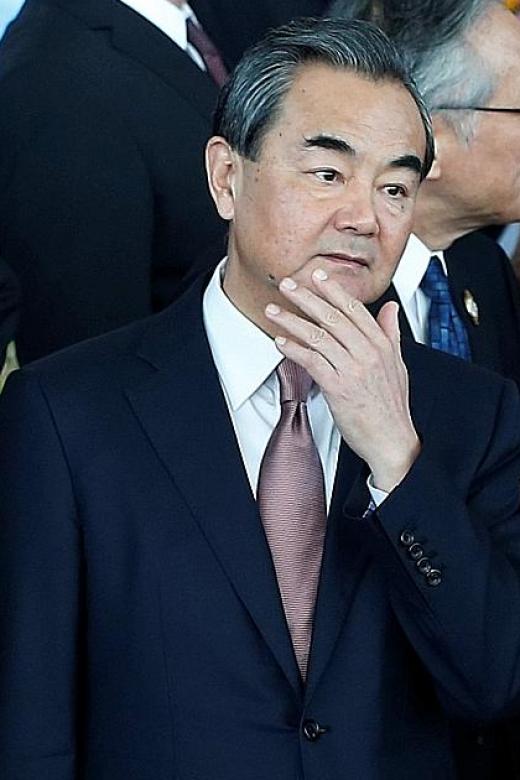China offers 3-phase plan for Rohingya issue
Minister says solution is ceasefire, then bilateral dialogue and poverty alleviation
NAYPYITAW China has proposed a three-phase plan for resolving the Rohingya crisis, starting with a ceasefire in Myanmar's Rakhine State so that refugees can return from Bangladesh, China's Foreign Ministry said ahead of meeting of European and Asian officials in Myanmar yesterday.
More than 600,000 Muslim Rohingya have fled to Bangladesh since late August, driven out by a military clearance operation in Buddhist majority Myanmar's Rakhine State.
The refugees' suffering has caused an international outcry.
The foreign ministers' Asia-Europe Meeting, or Asem, in the Myanmar capital Naypyitaw, is an important multilateral diplomatic gathering which happens once every two years and is designed to discuss issues between Asia and Europe. The meeting was scheduled to take place in Myanmar before the outbreak of the current crisis.
Speaking in Naypyitaw on Sunday after arriving from Dhaka, China's Foreign Minister Wang Yi said China believed that the Rohingya crisis could be addressed by a solution acceptable to neighbours Myanmar and Bangladesh through consultations.
"The first phase is to effect a ceasefire on the ground, to return to stability and order, so the people can enjoy peace and no longer be forced to flee," China's foreign ministry said in a statement, citing Mr Wang.
"With the hard work of all sides, at present the first phase's aim has already basically been achieved, and the key is to prevent a flare-up, especially that there is no rekindling the flames of war."
After a ceasefire is seen to be working, Mr Wang said bilateral dialogue should follow to find a workable solution, and the third and final phase should be to work toward a long-term solution based on poverty alleviation.
Mr Wang said poverty was the root cause of the conflict.
Myanmar's military has said that all fighting against the Rohingya Islamist militants died out on Sept 5, but it remains on guard against incursions by fighters who had fled to Bangladesh with the refugees.
The refugee crisis erupted after the military launched a brutal counter-insurgency operation against the militants after attacks on an army base and dozens of police security posts in Rakhine on Aug. 25.
The group behind those attacks, Arakan Rohingya Salvation Army (Arsa), had declared a one-month ceasefire on Sept 10, which was rejected by the government. But there have been no serious clashes since.
Visiting Myanmar last week, US Secretary of State Rex Tillerson condemned Arsa's attacks and voiced support for Myanmar's transition to democracy under the civilian administration led by Nobel peace prize winner Aung San Suu Kyi.
But Mr Tillerson also called for a credible investigation into reports of human rights abuses against the Rohingya committed by Myanmar's security forces. - REUTERS
Get The New Paper on your phone with the free TNP app. Download from the Apple App Store or Google Play Store now


